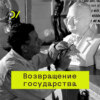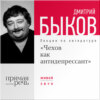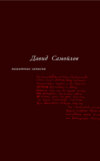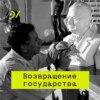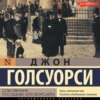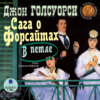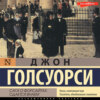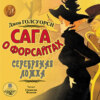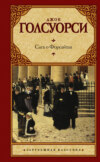Читать книгу: «Beyond», страница 10
“Oh, Mrs. Fiorsen, I do love him so!” At those naive words, a painful wish to laugh seized on Gyp, making her shiver from head to foot. Daphne Wing saw it, and went on: “I know – I know – it’s awful; but I do – and now he – he – ” Her quiet but really dreadful sobbing broke out again. And again Gyp began stroking and stroking her shoulder. “And I have been so awful to you! Oh, Mrs. Fiorsen, do forgive me, please!”
All Gyp could find to answer, was:
“Yes, yes; that’s nothing! Don’t cry – don’t cry!”
Very slowly the sobbing died away, till it was just a long shivering, but still the girl held her hands over her face and her face down. Gyp felt paralyzed. The unhappy girl, the red and green room, the smell of mutton – creeping!
At last, a little of that white face showed; the lips, no longer craving for sugar-plums, murmured:
“It’s you he – he – really loves all the time. And you don’t love him – that’s what’s so funny – and – and – I can’t understand it. Oh, Mrs. Fiorsen, if I could see him – just see him! He told me never to come again; and I haven’t dared. I haven’t seen him for three weeks – not since I told him about IT. What shall I do? What shall I do?”
His being her own husband seemed as nothing to Gyp at that moment. She felt such pity and yet such violent revolt that any girl should want to crawl back to a man who had spurned her. Unconsciously, she had drawn herself up and pressed her lips together. The girl, who followed every movement, said piteously:
“I don’t seem to have any pride. I don’t mind what he does to me, or what he says, if only I can see him.”
Gyp’s revolt yielded to her pity. She said:
“How long before?”
“Three months.”
Three months – and in this state of misery!
“I think I shall do something desperate. Now that I can’t dance, and THEY know, it’s too awful! If I could see him, I wouldn’t mind anything. But I know – I know he’ll never want me again. Oh, Mrs. Fiorsen, I wish I was dead! I do!”
A heavy sigh escaped Gyp, and, bending suddenly, she kissed the girl’s forehead. Still that scent of orange blossom about her skin or hair, as when she asked whether she ought to love or not; as when she came, moth-like, from the tree-shade into the moonlight, spun, and fluttered, with her shadow spinning and fluttering before her. Gyp turned away, feeling that she must relieve the strain, and pointing to the bowl, said:
“YOU put that there, I’m sure. It’s beautiful.”
The girl answered, with piteous eagerness:
“Oh, would you like it? Do take it. Count Rosek gave it me.” She started away from the door. “Oh, that’s papa. He’ll be coming in!”
Gyp heard a man clear his throat, and the rattle of an umbrella falling into a stand; the sight of the girl wilting and shrinking against the sideboard steadied her. Then the door opened, and Mr. Wagge entered. Short and thick, in black frock coat and trousers, and a greyish beard, he stared from one to the other. He looked what he was, an Englishman and a chapelgoer, nourished on sherry and mutton, who could and did make his own way in the world. His features, coloured, as from a deep liverishness, were thick, like his body, and not ill-natured, except for a sort of anger in his small, rather piggy grey eyes. He said in a voice permanently gruff, but impregnated with a species of professional ingratiation:
“Ye-es? Whom ‘ave I – ?”
“Mrs. Fiorsen.”
“Ow!” The sound of his breathing could be heard distinctly; he twisted a chair round and said:
“Take a seat, won’t you?”
Gyp shook her head.
In Mr. Wagge’s face a kind of deference seemed to struggle with some more primitive emotion. Taking out a large, black-edged handkerchief, he blew his nose, passed it freely over his visage, and turning to his daughter, muttered:
“Go upstairs.”
The girl turned quickly, and the last glimpse of her white face whipped up Gyp’s rage against men. When the door was shut, Mr. Wagge cleared his throat; the grating sound carried with it the suggestion of enormously thick linings.
He said more gruffly than ever:
“May I ask what ‘as given us the honour?”
“I came to see your daughter.”
His little piggy eyes travelled from her face to her feet, to the walls of the room, to his own watch-chain, to his hands that had begun to rub themselves together, back to her breast, higher than which they dared not mount. Their infinite embarrassment struck Gyp. She could almost hear him thinking: ‘Now, how can I discuss it with this attractive young female, wife of the scoundrel who’s ruined my daughter? Delicate-that’s what it is!’ Then the words burst hoarsely from him.
“This is an unpleasant business, ma’am. I don’t know what to say. Reelly I don’t. It’s awkward; it’s very awkward.”
Gyp said quietly:
“Your daughter is desperately unhappy; and that can’t be good for her just now.”
Mr. Wagge’s thick figure seemed to writhe. “Pardon me, ma’am,” he spluttered, “but I must call your husband a scoundrel. I’m sorry to be impolite, but I must do it. If I had ‘im ‘ere, I don’t know that I should be able to control myself – I don’t indeed.” Gyp made a movement of her gloved hands, which he seemed to interpret as sympathy, for he went on in a stream of husky utterance: “It’s a delicate thing before a lady, and she the injured party; but one has feelings. From the first I said this dancin’ was in the face of Providence; but women have no more sense than an egg. Her mother she would have it; and now she’s got it! Career, indeed! Pretty career! Daughter of mine! I tell you, ma’am, I’m angry; there’s no other word for it – I’m angry. If that scoundrel comes within reach of me, I shall mark ‘im – I’m not a young man, but I shall mark ‘im. An’ what to say to you, I’m sure I don’t know. That my daughter should be’ave like that! Well, it’s made a difference to me. An’ now I suppose her name’ll be dragged in the mud. I tell you frankly I ‘oped you wouldn’t hear of it, because after all the girl’s got her punishment. And this divorce-court – it’s not nice – it’s a horrible thing for respectable people. And, mind you, I won’t see my girl married to that scoundrel, not if you do divorce ‘im. No; she’ll have her disgrace for nothing.”
Gyp, who had listened with her head a little bent, raised it suddenly, and said:
“There’ll be no public disgrace, Mr. Wagge, unless you make it yourself. If you send Daphne – Daisy – quietly away somewhere till her trouble’s over, no one need know anything.”
Mr. Wagge, whose mouth had opened slightly, and whose breathing could certainly have been heard in the street, took a step forward and said:
“Do I understand you to say that you’re not goin’ to take proceedings, ma’am?”
Gyp shuddered, and shook her head.
Mr. Wagge stood silent, slightly moving his face up and down.
“Well,” he said, at length, “it’s more than she deserves; but I don’t disguise it’s a relief to me. And I must say, in a young lady like you, and – and handsome, it shows a Christian spirit.” Again Gyp shivered, and shook her head. “It does. You’ll allow me to say so, as a man old enough to be your father – and a regular attendant.”
He held out his hand. Gyp put her gloved hand into it.
“I’m very, very sorry. Please be nice to her.”
Mr. Wagge recoiled a little, and for some seconds stood ruefully rubbing his hands together and looking from side to side.
“I’m a domestic man,” he said suddenly. “A domestic man in a serious line of life; and I never thought to have anything like this in my family – never! It’s been – well, I can’t tell you what it’s been!”
Gyp took up her sunshade. She felt that she must get away; at any moment he might say something she could not bear – and the smell of mutton rising fast!
“I am sorry,” she said again; “good-bye”; and moved past him to the door. She heard him breathing hard as he followed her to open it, and thought: ‘If only – oh! please let him be silent till I get outside!’ Mr. Wagge passed her and put his hand on the latch of the front door. His little piggy eyes scanned her almost timidly.
“Well,” he said, “I’m very glad to have the privilege of your acquaintance; and, if I may say so, you ‘ave – you ‘ave my ‘earty sympathy. Good-day.”
The door once shut behind her, Gyp took a long breath and walked swiftly away. Her cheeks were burning; and, with a craving for protection, she put up her sunshade. But the girl’s white face came up again before her, and the sound of her words:
“Oh, Mrs. Fiorsen, I wish I was dead! I DO!”
XVI
Gyp walked on beneath her sunshade, making unconsciously for the peace of trees. Her mind was a whirl of impressions – Daphne Wing’s figure against the door, Mr. Wagge’s puggy grey-bearded countenance, the red pampas-grass, the blue bowl, Rosek’s face swooping at her, her last glimpse of her baby asleep under the trees!
She reached Kensington Gardens, turned into that walk renowned for the beauty of its flowers and the plainness of the people who frequent it, and sat down on a bench. It was near the luncheon-hour; nursemaids, dogs, perambulators, old gentlemen – all were hurrying a little toward their food. They glanced with critical surprise at this pretty young woman, leisured and lonely at such an hour, trying to find out what was wrong with her, as one naturally does with beauty – bow legs or something, for sure, to balance a face like that! But Gyp noticed none of them, except now and again a dog which sniffed her knees in passing. For months she had resolutely cultivated insensibility, resolutely refused to face reality; the barrier was forced now, and the flood had swept her away. “Proceedings!” Mr. Wagge had said. To those who shrink from letting their secret affairs be known even by their nearest friends, the notion of a public exhibition of troubles simply never comes, and it had certainly never come to Gyp. With a bitter smile she thought: ‘I’m better off than she is, after all! Suppose I loved him, too? No, I never – never – want to love. Women who love suffer too much.’
She sat on that bench a long time before it came into her mind that she was due at Monsieur Harmost’s for a music lesson at three o’clock. It was well past two already; and she set out across the grass. The summer day was full of murmurings of bees and flies, cooings of blissful pigeons, the soft swish and stir of leaves, and the scent of lime blossom under a sky so blue, with few white clouds slow, and calm, and full. Why be unhappy? And one of those spotty spaniel dogs, that have broad heads, with frizzy topknots, and are always rascals, smelt at her frock and moved round and round her, hoping that she would throw her sunshade on the water for him to fetch, this being in his view the only reason why anything was carried in the hand.
She found Monsieur Harmost fidgeting up and down the room, whose opened windows could not rid it of the smell of latakia.
“Ah,” he said, “I thought you were not coming! You look pale; are you not well? Is it the heat? Or” – he looked hard into her face – “has someone hurt you, my little friend?” Gyp shook her head. “Ah, yes,” he went on irritably; “you tell me nothing; you tell nobody nothing! You close up your pretty face like a flower at night. At your age, my child, one should make confidences; a secret grief is to music as the east wind to the stomach. Put off your mask for once.” He came close to her. “Tell me your troubles. It is a long time since I have been meaning to ask. Come! We are only once young; I want to see you happy.”
But Gyp stood looking down. Would it be relief to pour her soul out? Would it? His brown eyes questioned her like an old dog’s. She did not want to hurt one so kind. And yet – impossible!
Monsieur Harmost suddenly sat down at the piano. Resting his hands on the keys, he looked round at her, and said:
“I am in love with you, you know. Old men can be very much in love, but they know it is no good – that makes them endurable. Still, we like to feel of use to youth and beauty; it gives us a little warmth. Come; tell me your grief!” He waited a moment, then said irritably: “Well, well, we go to music then!”
It was his habit to sit by her at the piano corner, but to-day he stood as if prepared to be exceptionally severe. And Gyp played, whether from overexcited nerves or from not having had any lunch, better than she had ever played. The Chopin polonaise in A flat, that song of revolution, which had always seemed so unattainable, went as if her fingers were being worked for her. When she had finished, Monsieur Harmost, bending forward, lifted one of her hands and put his lips to it. She felt the scrub of his little bristly beard, and raised her face with a deep sigh of satisfaction. A voice behind them said mockingly:
“Bravo!”
There, by the door, stood Fiorsen.
“Congratulations, madame! I have long wanted to see you under the inspiration of your – master!”
Gyp’s heart began to beat desperately. Monsieur Harmost had not moved. A faint grin slowly settled in his beard, but his eyes were startled.
Fiorsen kissed the back of his own hand.
“To this old Pantaloon you come to give your heart. Ho – what a lover!”
Gyp saw the old man quiver; she sprang up and cried:
“You brute!”
Fiorsen ran forward, stretching out his arms toward Monsieur Harmost, as if to take him by the throat.
The old man drew himself up. “Monsieur,” he said, “you are certainly drunk.”
Gyp slipped between, right up to those outstretched hands till she could feel their knuckles against her. Had he gone mad? Would he strangle her? But her eyes never moved from his, and his began to waver; his hands dropped, and, with a kind of moan, he made for the door.
Monsieur Harmost’s voice behind her said:
“Before you go, monsieur, give me some explanation of this imbecility!”
Fiorsen spun round, shook his fist, and went out muttering. They heard the front door slam. Gyp turned abruptly to the window, and there, in her agitation, she noticed little outside things as one does in moments of bewildered anger. Even into that back yard, summer had crept. The leaves of the sumach-tree were glistening; in a three-cornered little patch of sunlight, a black cat with a blue ribbon round its neck was basking. The voice of one hawking strawberries drifted melancholy from a side street. She was conscious that Monsieur Harmost was standing very still, with a hand pressed to his mouth, and she felt a perfect passion of compunction and anger. That kind and harmless old man – to be so insulted! This was indeed the culmination of all Gustav’s outrages! She would never forgive him this! For he had insulted her as well, beyond what pride or meekness could put up with. She turned, and, running up to the old man, put both her hands into his.
“I’m so awfully sorry. Good-bye, dear, dear Monsieur Harmost; I shall come on Friday!” And, before he could stop her, she was gone.
She dived into the traffic; but, just as she reached the pavement on the other side, felt her dress plucked and saw Fiorsen just behind her. She shook herself free and walked swiftly on. Was he going to make a scene in the street? Again he caught her arm. She stopped dead, faced round on him, and said, in an icy voice:
“Please don’t make scenes in the street, and don’t follow me like this. If you want to talk to me, you can – at home.”
Then, very calmly, she turned and walked on. But he was still following her, some paces off. She did not quicken her steps, and to the first taxicab driver that passed she made a sign, and saying:
“Bury Street – quick!” got in. She saw Fiorsen rush forward, too late to stop her. He threw up his hand and stood still, his face deadly white under his broad-brimmed hat. She was far too angry and upset to care.
From the moment she turned to the window at Monsieur Harmost’s, she had determined to go to her father’s. She would not go back to Fiorsen; and the one thought that filled her mind was how to get Betty and her baby. Nearly four! Dad was almost sure to be at his club. And leaning out, she said: “No; Hyde Park Corner, please.”
The hall porter, who knew her, after calling to a page-boy: “Major Winton – sharp, now!” came specially out of his box to offer her a seat and The Times.
Gyp sat with it on her knee, vaguely taking in her surroundings – a thin old gentleman anxiously weighing himself in a corner, a white-calved footman crossing with a tea-tray; a number of hats on pegs; the green-baize board with its white rows of tapelike paper, and three members standing before it. One of them, a tall, stout, good-humoured-looking man in pince-nez and a white waistcoat, becoming conscious, removed his straw hat and took up a position whence, without staring, he could gaze at her; and Gyp knew, without ever seeming to glance at him, that he found her to his liking. She saw her father’s unhurried figure passing that little group, all of whom were conscious now, and eager to get away out of this sanctum of masculinity, she met him at the top of the low steps, and said:
“I want to talk to you, Dad.”
He gave her a quick look, selected his hat, and followed to the door. In the cab, he put his hand on hers and said:
“Now, my dear?”
But all she could get out was:
“I want to come back to you. I can’t go on there. It’s – it’s – I’ve come to an end.”
His hand pressed hers tightly, as if he were trying to save her the need for saying more. Gyp went on:
“I must get baby; I’m terrified that he’ll try to keep her, to get me back.”
“Is he at home?”
“I don’t know. I haven’t told him that I’m going to leave him.”
Winton looked at his watch and asked:
“Does the baby ever go out as late as this?”
“Yes; after tea. It’s cooler.”
“I’ll take this cab on, then. You stay and get the room ready for her. Don’t worry, and don’t go out till I return.”
And Gyp thought: ‘How wonderful of him not to have asked a single question.’
The cab stopped at the Bury Street door. She took his hand, put it to her cheek, and got out. He said quietly:
“Do you want the dogs?”
“Yes – oh, yes! He doesn’t care for them.”
“All right. There’ll be time to get you in some things for the night after I come back. I shan’t run any risks to-day. Make Mrs. Markey give you tea.”
Gyp watched the cab gather way again, saw him wave his hand; then, with a deep sigh, half anxiety, half relief, she rang the bell.
XVII
When the cab debouched again into St. James’ Street, Winton gave the order: “Quick as you can!” One could think better going fast! A little red had come into his brown cheeks; his eyes under their half-drawn lids had a keener light; his lips were tightly closed; he looked as he did when a fox was breaking cover. Gyp could do no wrong, or, if she could, he would stand by her in it as a matter of course. But he was going to take no risks – make no frontal attack. Time for that later, if necessary. He had better nerves than most people, and that kind of steely determination and resource which makes many Englishmen of his class formidable in small operations. He kept his cab at the door, rang, and asked for Gyp, with a kind of pleasure in his ruse.
“She’s not in yet, sir. Mr. Fiorsen’s in.”
“Ah! And baby?”
“Yes, sir.”
“I’ll come in and see her. In the garden?”
“Yes, sir.”
“Dogs there, too?”
“Yes, sir. And will you have tea, please, sir?”
“No, thanks.” How to effect this withdrawal without causing gossip, and yet avoid suspicion of collusion with Gyp? And he added: “Unless Mrs. Fiorsen comes in.”
Passing out into the garden, he became aware that Fiorsen was at the dining-room window watching him, and decided to make no sign that he knew this. The baby was under the trees at the far end, and the dogs came rushing thence with a fury which lasted till they came within scent of him. Winton went leisurely up to the perambulator, and, saluting Betty, looked down at his grandchild. She lay under an awning of muslin, for fear of flies, and was awake. Her solemn, large brown eyes, already like Gyp’s, regarded him with gravity. Clucking to her once or twice, as is the custom, he moved so as to face the house. In this position, he had Betty with her back to it. And he said quietly:
“I’m here with a message from your mistress, Betty. Keep your head; don’t look round, but listen to me. She’s at Bury Street and going to stay there; she wants you and baby and the dogs.” The stout woman’s eyes grew round and her mouth opened. Winton put his hand on the perambulator. “Steady, now! Go out as usual with this thing. It’s about your time; and wait for me at the turning to Regent’s Park. I’ll come on in my cab and pick you all up. Don’t get flurried; don’t take anything; do exactly as you usually would. Understand?”
It is not in the nature of stout women with babies in their charge to receive such an order without question. Her colour, and the heaving of that billowy bosom made Winton add quickly:
“Now, Betty, pull yourself together; Gyp wants you. I’ll tell you all about it in the cab.”
The poor woman, still heaving vaguely, could only stammer:
“Yes, sir. Poor little thing! What about its night-things? And Miss Gyp’s?”
Conscious of that figure still at the window, Winton made some passes with his fingers at the baby, and said:
“Never mind them. As soon as you see me at the drawing-room window, get ready and go. Eyes front, Betty; don’t look round; I’ll cover your retreat! Don’t fail Gyp now. Pull yourself together.”
With a sigh that could have been heard in Kensington, Betty murmured: “Very well, sir; oh dear!” and began to adjust the strings of her bonnet. With nods, as if he had been the recipient of some sage remarks about the baby, Winton saluted, and began his march again towards the house. He carefully kept his eyes to this side and to that, as if examining the flowers, but noted all the same that Fiorsen had receded from the window. Rapid thought told him that the fellow would come back there to see if he were gone, and he placed himself before a rose-bush, where, at that reappearance, he could make a sign of recognition. Sure enough, he came; and Winton quietly raising his hand to the salute passed on through the drawing-room window. He went quickly into the hall, listened a second, and opened the dining-room door. Fiorsen was pacing up and down, pale and restless. He came to a standstill and stared haggardly at Winton, who said:
“How are you? Gyp not in?”
“No.”
Something in the sound of that “No” touched Winton with a vague – a very vague – compunction. To be left by Gyp! Then his heart hardened again. The fellow was a rotter – he was sure of it, had always been sure.
“Baby looks well,” he said.
Fiorsen turned and began to pace up and down again.
“Where is Gyp? I want her to come in. I want her.”
Winton took out his watch.
“It’s not late.” And suddenly he felt a great aversion for the part he was playing. To get the baby; to make Gyp safe – yes! But, somehow, not this pretence that he knew nothing about it. He turned on his heel and walked out. It imperilled everything; but he couldn’t help it. He could not stay and go on prevaricating like this. Had that woman got clear? He went back into the drawing-room. There they were – just passing the side of the house. Five minutes, and they would be down at the turning. He stood at the window, waiting. If only that fellow did not come in! Through the partition wall he could hear him still tramping up and down the dining-room. What a long time a minute was! Three had gone when he heard the dining-room door opened, and Fiorsen crossing the hall to the front door. What was he after, standing there as if listening? And suddenly he heard him sigh. It was just such a sound as many times, in the long-past days, had escaped himself, waiting, listening for footsteps, in parched and sickening anxiety. Did this fellow then really love – almost as he had loved? And in revolt at spying on him like this, he advanced and said:
“Well, I won’t wait any longer.”
Fiorsen started; he had evidently supposed himself alone. And Winton thought: ‘By Jove! he does look bad!’
“Good-bye!” he said; but the words: “Give my love to Gyp,” perished on their way up to his lips.
“Good-bye!” Fiorsen echoed. And Winton went out under the trellis, conscious of that forlorn figure still standing at the half-opened door. Betty was nowhere in sight; she must have reached the turning. His mission had succeeded, but he felt no elation. Round the corner, he picked up his convoy, and, with the perambulator hoisted on to the taxi, journeyed on at speed. He had said he would explain in the cab, but the only remark he made was:
“You’ll all go down to Mildenham to-morrow.”
And Betty, who had feared him ever since their encounter so many years ago, eyed his profile, without daring to ask questions. Before he reached home, Winton stopped at a post-office, and sent this telegram:
“Gyp and the baby are with me letter follows. – WINTON.”
It salved a conscience on which that fellow’s figure in the doorway weighed; besides, it was necessary, lest Fiorsen should go to the police. The rest must wait till he had talked with Gyp.
There was much to do, and it was late before they dined, and not till Markey had withdrawn could they begin their talk.
Close to the open windows where Markey had placed two hydrangea plants – just bought on his own responsibility, in token of silent satisfaction – Gyp began. She kept nothing back, recounting the whole miserable fiasco of her marriage. When she came to Daphne Wing and her discovery in the music-room, she could see the glowing end of her father’s cigar move convulsively. That insult to his adored one seemed to Winton so inconceivable that, for a moment, he stopped her recital by getting up to pace the room. In her own house – her own house! And – after that, she had gone on with him! He came back to his chair and did not interrupt again, but his stillness almost frightened her.
Coming to the incidents of the day itself, she hesitated. Must she tell him, too, of Rosek – was it wise, or necessary? The all-or-nothing candour that was part of her nature prevailed, and she went straight on, and, save for the feverish jerking of his evening shoe, Winton made no sign. When she had finished, he got up and slowly extinguished the end of his cigar against the window-sill; then looking at her lying back in her chair as if exhausted, he said: “By God!” and turned his face away to the window.
At that hour before the theatres rose, a lull brooded in the London streets; in this quiet narrow one, the town’s hum was only broken by the clack of a half-drunken woman bickering at her man as they lurched along for home, and the strains of a street musician’s fiddle, trying to make up for a blank day. The sound vaguely irritated Winton, reminding him of those two damnable foreigners by whom she had been so treated. To have them at the point of a sword or pistol – to teach them a lesson! He heard her say:
“Dad, I should like to pay his debts. Then things would be as they were when I married him.”
He emitted an exasperated sound. He did not believe in heaping coals of fire.
“I want to make sure, too, that the girl is all right till she’s over her trouble. Perhaps I could use some of that – that other money, if mine is all tied up?”
It was sheer anger, not disapproval of her impulse, that made him hesitate; money and revenge would never be associated in his mind. Gyp went on:
“I want to feel as if I’d never let him marry me. Perhaps his debts are all part of that – who knows? Please!”
Winton looked at her. How like – when she said that “Please!” How like – her figure sunk back in the old chair, and the face lifted in shadow! A sort of exultation came to him. He had got her back – had got her back!
XVIII
Fiorsen’s bedroom was – as the maid would remark – “a proper pigsty” – until he was out of it and it could be renovated each day. He had a talent for disorder, so that the room looked as if three men instead of one had gone to bed in it. Clothes and shoes, brushes, water, tumblers, breakfast-tray, newspapers, French novels, and cigarette-ends – none were ever where they should have been; and the stale fumes from the many cigarettes he smoked before getting up incommoded anyone whose duty it was to take him tea and shaving-water. When, on that first real summer day, the maid had brought Rosek up to him, he had been lying a long time on his back, dreamily watching the smoke from his cigarette and four flies waltzing in the sunlight that filtered through the green sun-blinds. This hour, before he rose, was his creative moment, when he could best see the form of music and feel inspiration for its rendering. Of late, he had been stale and wretched, all that side of him dull; but this morning he felt again the delicious stir of fancy, that vibrating, half-dreamy state when emotion seems so easily to find shape and the mind pierces through to new expression. Hearing the maid’s knock, and her murmured: “Count Rosek to see you, sir,” he thought: ‘What the devil does he want?’ A larger nature, drifting without control, in contact with a smaller one, who knows his own mind exactly, will instinctively be irritable, though he may fail to grasp what his friend is after.
And pushing the cigarette-box toward Rosek, he turned away his head. It would be money he had come about, or – that girl! That girl – he wished she was dead! Soft, clinging creature! A baby! God! What a fool he had been – ah, what a fool! Such absurdity! Unheard of! First Gyp – then her! He had tried to shake the girl off. As well try to shake off a burr! How she clung! He had been patient – oh, yes – patient and kind, but how go on when one was tired – tired of her – and wanting only Gyp, only his own wife? That was a funny thing! And now, when, for an hour or two, he had shaken free of worry, had been feeling happy – yes, happy – this fellow must come, and stand there with his face of a sphinx! And he said pettishly:
“Well, Paul! sit down. What troubles have you brought?”
Rosek lit a cigarette but did not sit down. He struck even Fiorsen by his unsmiling pallor.
“You had better look out for Mr. Wagge, Gustav; he came to me yesterday. He has no music in his soul.”



